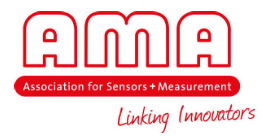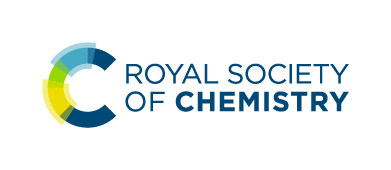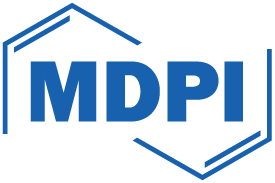Anne L'Huillier
Lund University, Lund, Sweden
Anne L'Huillier is a French/Swedish physicist at Lund University, Lund, Sweden. She began her career at the Commissariat à l'énergie atomique in Saclay, France, first as a PhD student and then as a permanent researcher. In 1995, she moved to Lund University and became a full professor in 1997. She was awarded the Nobel Prize in Physics 2023 together with Pierre Agostini and Ferenc Krausz “for experimental methods that generate attosecond pulses of light for the study of electron dynamics in matter”.
Piotr Dziuban
Creotech Instruments, Poland
Dr. Piotr J. Dziuban is Chief Technology Officer at Creotech Instruments S.A., directing the development of satellite systems for the European Space Agency and the Polish Government. With over 15 years of experience, he has led engineering teams on global space missions and defense intelligence, surveillance, and reconnaissance aircraft and unmanned aerial vehicle programs, including senior strategy and managerial roles at Airbus Defence & Space. He earned his Ph.D. in physics from the Université de Franche-Comté and an M.Sc. in electronics and telecommunications from Wrocław University of Science and Technology.
Stefan Majoni
Robert Bosch GmbH, Germany
Stefan Majoni, studied chemistry in Hannover and completed his PhD in solid state physical chemistry in 1994. He developed semiconductor lithography processes for DRAMs with IBM and ASICs with Philips. Since 2005, he joins the Bosch MEMS team in several management positions, primarily in development and partly in production. Stefan currently drives MEMS foundry service as director for Bosch.
Chengkuo Lee
1 Department of Electrical & Computer Engineering, National University of Singapore 2 Center for Intelligent Sensors and MEMS (CISM), National University of Singapore, 3 National Centre for Advanced Integrated Photonics (NCAIP)
Dr. Chengkuo Lee is Optica Fellow, GlobalFoundries Chair Professor in Engineering and director of the Center for Intelligent Sensors and MEMS at the National University of Singapore, Singapore. He co-founded Asia Pacific Microsystems, Inc. (APM) in 2001, where he was Vice President of R&D from 2001 to 2005. From 2006 to 2009, he was a Senior Member of the Technical Staff at the Institute of Microelectronics (IME), A-STAR, Singapore. ##MORE##His research interests include MEMS, NEMS, nanophotonics, Si Photonics, metamaterials, energy harvesting, wearable sensors, and artificial intelligence of things (AIoT). He has co-authored 530+ journal articles and 390+ conference papers. He holds 10 US patents. He is also recognized as one of the 21 most influential professors at NUS. Furthermore, he is Highly Cited Researcher Designations in 2023 and 2024 (Clarivate). According to the data from D-index (Discipline H-index) from Research.Com, he ranks 147 among all the electronics and electrical engineering scientists globally, based on the data April 2025. He is the associate editor-in-chief of Trans. Nanotechnology (IEEE), editor-in-chief of Intern. J. Optomechatronics (Taylor & Francis), and editor-in-chief of AI Sensors (MDPI). He is the Executive Editor of J Micromechanics and Microeng. (IOP, UK). He is the Associate Editor of J. MEMS (IEEE), Chip (Elsevier), and Internet of Things (Elsevier).
Barbara Fabbri
Università degli Studi di Ferrara, Dipartimento di Fisica e Scienze della Terra, Italy
Dr. Barbara Fabbri is a researcher at the University of Ferrara, where obtained her PhD in Physics in 2015. At the Department of Physics and Earth Sciences, she has experienced since more than ten years with gas sensing technology working on the key factors involved in solid-state devices research, i.e. innovative sensing materials, their characterization by advanced techniques and their application, from environmental monitoring to medical diagnosis and precision agriculture. She co-authored 40+ peer-reviewed articles and attended 25+ conferences/schools as a speaker. She is the inventor of 2 patents, and she is a qualified lecturer.
Andreas T. Güntner
1 Human-centered Sensing Laboratory, Department of Mechanical and Process Engineering, ETH Zürich 2 Department of Endocrinology, Diabetology and Clinical Nutrition, University Hospital Zurich and University of Zurich
Andreas Güntner is an Assistant Professor of Molecular Sensing at ETH Zürich, a Research Associate at the University Hospital Zürich and Editor of Sensors and Actuators B: Chemical. Before, he served as CEO and co-founder of Alivion AG that has successfully commercialized the first handheld methanol detector with clients in 26 countries in the food, oil & gas, health and transportation industries. ##MORE##In 2022, Andreas returned to academia and founded the Human-centered Sensing Laboratory at ETH Zürich that works on micro/nanosystems and their application as molecular sensors to tackle healthcare and environmental issues. Andreas has published ca. 50 original research articles in leading journals (e.g. Nature Food, Nature Commun., Advanced Materials, Angew. Chemie, Advanced Science) and has been frequently featured by news outlets around the world (100+ since 2016). His scientific and entrepreneurial activities have been recognized by several awards, including ERC Starting Grant, Emerging Technology Award by the Royal Society of Chemistry, Beiersdorf Excellence Award in Product Design and Engineering by the European Fed. Chem. Eng., Association for Aerosol Research (GAeF) PhD Award and the De Vigier Award.
Jan Dziuban
Wrocław University of Science and Technology Faculty of Electronics, Photonics and Microsystems, Poland
Jan A. Dziuban's scientific profile is closely linked to the development of MEMS, MOEMS, and analytical microsystems. He is the author of over 500 papers. He is the author of two monographs, four chapters in monographs, and four chapters in other scientific books. He holds 23 patents. Jan A. Dziuban's scientific work is foundational to the development of microsystems technology in Poland and has significantly contributed to the development of this field internationally. ##MORE## He is pioneer in silicon micromechanics and MEMS research in Poland and internationally. He works on the development of physical, chemical, and biomedical MEMS/MOEMS components and miniature vacuum nanoelectronics devices. He is the co-founder, manager, and/or implementer of dozens of national and international projects, including the MEMS microsensor family, microfluidic microsystems, and micromachines. He developedmthe European MEMS atomic microclock technology and a number of integrated biomedical analytical instruments (including PCR-based DNA detection for military applications). He is a laureate of numerous international and national scientific awards, and has been or is a member of the steering committees of the most important international and national congresses in the field (Eurosensors, Transducers, IVNC, PowerMEMS, COE, ELTE).







